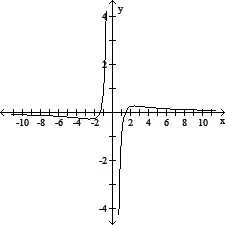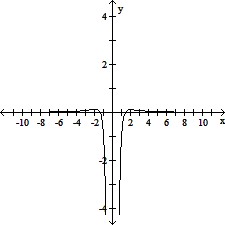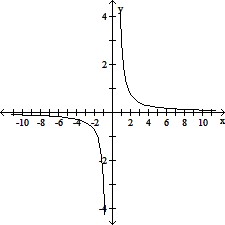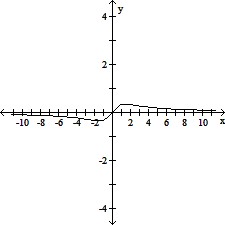Provide the proper response.If an ellipse has vertices at (-1, 0), (1, 0), (0, 5), and (0, -5), what is its domain? What is its range?
A. Domain: [0, 1]; Range: [0, 5]
B. Domain: [-5, 5]; Range: [-1, 1]
C. Domain: [-1, 1]; Range: [-5, 5]
D. Domain: [-1, 5]; Range: [-5, 1]
Answer: C
You might also like to view...
Choose the graph that represents the given function without using a graphing utility.f(x) = 
A. 
B. 
C. 
D. 
Solve the quadratic equation by using the quadratic formula. If the equation has no real solutions, write "no real-number solutions."p2 + 3p - 9 = 0
A. -3 ± 3
B. 
C. 
D. 
Use the binomial theorem to expand the expression.(a - b)6
A. a6 - 6a5b + 15a4b2 - 20a3b3 + 15a2b4 - 6ab5 + b6 B. a6 - 6a5b - 15a4b2 - 20a3b3 - 15a2b4 - 6ab5 - b6 C. a6 + 6a5b + 15a4b2 + 20a3b3 + 15a2b4 + 6ab5 + b6 D. -a6 + 6a5b - 15a4b2 + 20a3b3 - 15a2b4 + 6ab5 - b6
Use the four-step procedure to solve the variation problem.x varies inversely as v. x = 24 when v = 5. Find x when v = 20.
A. x = 4 B. x = 25 C. x = 30 D. x = 6